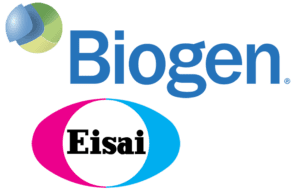 After FDA approved Biogen’s (NSDQ:BIIB) and Eisai’s (OTCMKTS:ESALY) Aduhelm (aducanumab) to treat Alzheimer’s disease, the agency faced criticism that the indication was overly broad. While initially indicating aducanumab for all Alzheimer’s patients, the agency has decided to recommend it for patients with mild forms of the disease.
After FDA approved Biogen’s (NSDQ:BIIB) and Eisai’s (OTCMKTS:ESALY) Aduhelm (aducanumab) to treat Alzheimer’s disease, the agency faced criticism that the indication was overly broad. While initially indicating aducanumab for all Alzheimer’s patients, the agency has decided to recommend it for patients with mild forms of the disease.
The EMERGE and ENGAGE Phase 3 studies for the drug involved patients with early Alzheimer’s disease.
The revised label recommends the use of the drug in patients with “mild cognitive impairment or mild dementia stage of disease.”
The revised label points out that there are no safety or effectiveness data for people with “earlier or later stages of the disease than were studied” in the Phase 3 trials.
The update came after Biogen’s head of R&D, Dr. Alfred Sandrock, requested that the agency incorporate feedback from physicians and the Alzheimer’s community.
Critics have also lamented that the prospect of making the drug available to all Alzheimer’s patients would have a significant cost burden for Medicare and other payers reimbursing the treatment, which costs $56,000 annually.
Biogen announced the news in a press release.
Roughly six million people in the U.S. have Alzheimer’s disease. Nearly half of Alzheimer’s cases are mild, while 30% are moderate and the remaining 20% are severe, according to the NIH.
If one million Medicare recipients were to receive aducanumab in a given year, the overall cost could exceed spending for all Part B–covered drugs, according to KFF.
Last week, GlobalData projected that Aduhelm sales would hit $5.5 billion internationally by 2027.